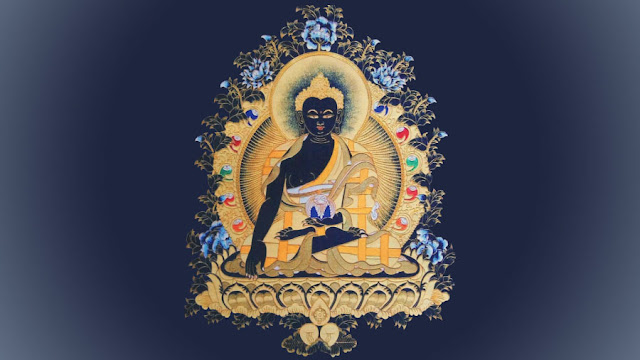Living With Fools
Asevana ca balanam panditanañca sevana,
"Don't associate with fools. Associate only with wise people."
"Fools" are people whose minds and actions are unskillful and "evil". They are unskillful in their actions - killing, stealing, having careless sex - and unskillful in their words: telling lies, creating disharmony, deceiving other people, engage in gossip. They are unskillful in their thoughts - judging others, conceptualizing, lost in drunken fantasy.
Fools are the enemy of society because unskillful behavior makes us the enemy of society. Gossiping, for example, makes us the enemy of those we tell tales about, enemies of the persons we share our filth with, enemies of ourselves as we spew our half truths and lies. That's one example of a fool. Serving one's self over serving others is yet another. Being willing to harm others is one of the prevalent examples of foolishness in the world today. The foolishness of feeling more entitled than others is so common that many have stopped seeing it as a quality of social disease.
If you associate with people of this kind, it's as if you're letting them pull you into a hole where there's nothing but darkness and pain. The deeper you go, the darker it gets, to the point where you can't see any light at all. There's no way out. The more you associate with fools, the stupider you get, and you find yourself slipping into ways that lead to nothing but pain and suffering.
The wise bring you back out into the light, and you'll be able to be more intelligent, have eyes to see. You'll be able to help yourself gain freedom from suffering and turmoil, and will meet with nothing but happiness, progress, and peace. This is why we're taught to associate only with good people and to avoid associating with bad.
It is wise to abandon association with fools. Fools abound everywhere: at home, at work, on the Internet, at the coffee shop, but the biggest fools we associate with live within our very own mind. They are
- Attachment
- Aversion
- Laziness & drowsiness
- Restless & anxiety
The spawn of ignorance, blindness to reality.
..."Abandoning covetousness with regard to the world, he dwells with an awareness devoid of covetousness. He cleanses his mind of covetousness. Abandoning ill will & anger, he dwells with an awareness devoid of ill will, sympathetic with the welfare of all living beings. He cleanses his mind of ill will & anger. Abandoning sloth & drowsiness, he dwells with an awareness devoid of sloth & drowsiness, mindful, alert, percipient of light. He cleanses his mind of sloth & drowsiness. Abandoning restlessness & anxiety, he dwells undisturbed, his mind inwardly stilled. He cleanses his mind of restlessness & anxiety. Abandoning uncertainty, he dwells having crossed over uncertainty, with no perplexity with regard to skillful mental qualities. He cleanses his mind of uncertainty.
"Suppose that a man, taking a loan, invests it in his business affairs. His business affairs succeed. He repays his old debts and there is extra left over for maintaining his wife. The thought would occur to him, 'Before, taking a loan, I invested it in my business affairs. Now my business affairs have succeeded. I have repaid my old debts and there is extra left over for maintaining my wife.' Because of that he would experience joy & happiness.
"Now suppose that a man falls sick - in pain & seriously ill. He does not enjoy his meals, and there is no strength in his body. As time passes, he eventually recovers from that sickness. He enjoys his meals and there is strength in his body. The thought would occur to him, 'Before, I was sick... Now I am recovered from that sickness. I enjoy my meals and there is strength in my body.' Because of that he would experience joy & happiness.
"Now suppose that a man is bound in prison. As time passes, he eventually is released from that bondage, safe & sound, with no loss of property. The thought would occur to him, 'Before, I was bound in prison. Now I am released from that bondage, safe & sound, with no loss of my property.' Because of that he would experience joy & happiness.
"Now suppose that a man is a slave, subject to others, not subject to himself, unable to go where he likes. As time passes, he eventually is released from that slavery, subject to himself, not subject to others, freed, able to go where he likes. The thought would occur to him, 'Before, I was a slave... Now I am released from that slavery, subject to myself, not subject to others, freed, able to go where I like.' Because of that he would experience joy & happiness.
"Now suppose that a man, carrying money & goods, is traveling by a road through desolate country. As time passes, he eventually emerges from that desolate country, safe & sound, with no loss of property. The thought would occur to him, 'Before, carrying money & goods, I was traveling by a road through desolate country. Now I have emerged from that desolate country, safe & sound, with no loss of my property.' Because of that he would experience joy & happiness.
"In the same way, when these five hindrances are not abandoned in himself, the monk regards it as a debt, a sickness, a prison, slavery, a road through desolate country. But when these five hindrances are abandoned in himself, he regards it as un-indebtedness, good health, release from prison, freedom, a place of security. Seeing that they have been abandoned within him, he becomes glad. Glad, he becomes enraptured. Enraptured, his body grows tranquil. His body tranquil, he is sensitive to pleasure. Feeling pleasure, his mind becomes concentrated."
Digha Nikāya 12 Lohicca Sutta



